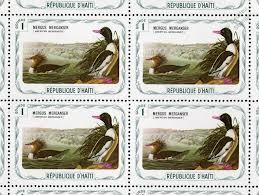The American Bird Conservancy (ABC), in comments submitted to EPA, stated that preliminary results of a study it is conducting show that EPA is underestimating the aquatic toxicity to birds and other wildlife of the neonicotinoids based on preliminary research results conducted at Carleton U. by Pierre Mineau, an environmental toxicologist with Environment Canada and a Carleton U. adjunct faculty member in Ottawa, ON. ABC is preparing a comprehensive review of the neonicotinoids' effects on birds and including recommendations to EPA on how to better assess those chemicals’ risks. The review is expected to be completed by February. If adopted by EPA, the study's recommendations would serve as yet another change to the agency’s ecological risk assessments for the neonicotinoids.
Neonicotinoids have come under scrutiny in the United States and abroad after being linked to declines in bee and pollinator health, but their alleged avian toxicity has not received public attention. EPA already is planning to update its current risk assessment for pollinators with a new quantitative, tiered approach that could result in more conservative risk estimates for a wide range of pesticides. ABC is waiting for EPA to release records, which it sought in October through a Freedom of Information Act request, on the avian acute, sub-acute and reproductive studies submitted during the registration of the seven neonicotinoids.
Source: Western Farm Press, December 10, 2012
http://westernfarmpress.com/cotton/bird-conservancy-targets-neonicotino…

- Login om te reageren

Bibliography of Pierre Mineau
Dr. Pierre Mineau began his long distinguished scientific career studying of the effects of persistent organochlorine compounds (like DDT) on birds. He was then responsible for assessing new and existing pesticides use in Canada to determine their adverse impacts on wildlife. In 1994 he moved from regulatory reviews to full-time research on pesticide impacts. Working with international collaborators and graduate students he analyzes bird population trends in response to pesticide use. How studies agricultural practices affect wildlife and what are the ecological values of birds in croplands. He has written more than 100 peer-reviewed publications and has authored some 200 presentations. He now holds an Emeritus position with the government, serves as an adjunct research professor at Carleton University in Ottawa and at the University of Saskatchewan in Saskatoon, and consults privately.
Source: Rachel Carson Council
http://www.rachelcarsoncouncil.org/index.php?page=50th-anniversary-spea…